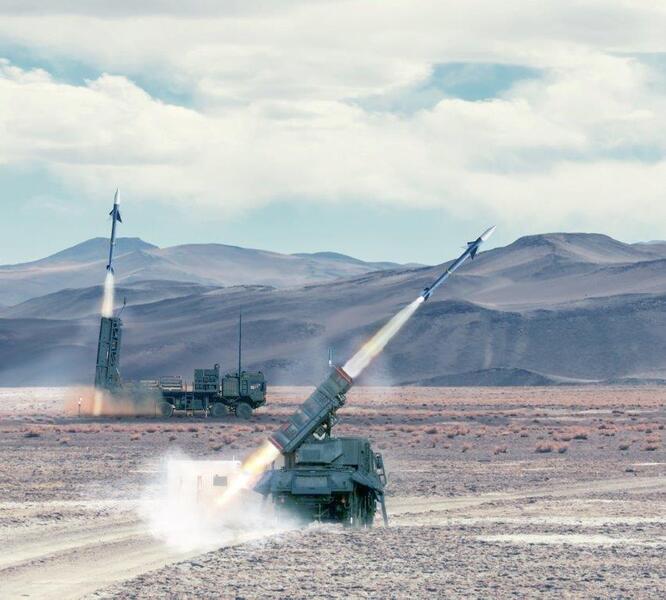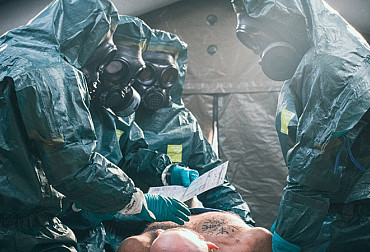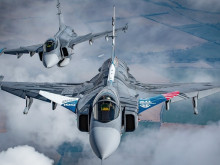The Czech Republic and Israel are close to an agreement on Spyder
There hasn't been much good news for the modernization of the Czech Army lately. The huge deficit in the state budget, which is due to approach CZK 400 billion next year, will undoubtedly have a major impact on the acquisition of new infantry fighting vehicles, which will continue well after the October parliamentary elections. Metnar's resort, however, has a chance to take credit for one great success: the modernization of ground air defenses.
 Picture: SPYDER - Short and medium range anti-aircraft missile system (SHORAD) | Ministry of Defense of the Czech Republic
Picture: SPYDER - Short and medium range anti-aircraft missile system (SHORAD) | Ministry of Defense of the Czech Republic
This is still provided mainly by the Soviet system 2 K12M KUB (in NATO code SA-6 GAINFUL), which was introduced into the armament of the Czechoslovak People's Army in 1975. To give an idea of how long this has been going on, it is enough to note that at that time the current Chief of The General Staff of the Army of the Czech Republic, General Opata, was 11 years old. Therefore, the absolute priority, perhaps even stronger than the infantry fighting vehicle project, is to replace it.
This should be ensured by Israel's defence industry. In recent months, the Ministries of Defense of the Czech Republic and Israel have been frantically negotiating the purchase of the Israeli Spyder air defense system produced by the state-owned company Rafael. Negotiating teams are closing in on a final agreement on the content and price of the contract, which could be concluded during the summer.
There is no doubt about the technical qualities of the system. Israel's air defense capabilities have been thoroughly tested in the latest conflict, in which the Palestinian Hamas movement shelled Israel's territory with rockets from May 11 to 22. Terrorist missile attacks on civilians have been eliminated thanks to excellent air defenses, in which the Iron Dome system plays a major role. 1,428 missiles were successfully shot down, heading for populated areas, a success rate of over 95 percent. Iron Dome radars, which are capable of capturing hundreds of targets and guide defensive missiles in real time, are manufactured by Rafael and will be one of the components of the Spyder system that the Czech Republic is negotiating to acquire.
Key advantage: industrial cooperation
A key advantage of cooperation with the Israelis in the air defense project is the wide involvement of Czech industry. The air defense system is one of the most sophisticated and technologically advanced weapons, and it is common even for advanced countries to be supplied as a ready-made solution without the share of domestic industry. In the Czech case, however, the share of Czech industry will be 30 percent.
Israelis want to involve Czech businesses in several categories. At the lowest level, Czech companies will provide the purchase and assembly of ordinary commercial components, at the middle level Czech industry will produce Spyder components according to Israeli production documentation, and at the highest level the Israeli manufacturer will specify what the required subsystem should meet, and Czech engineers will design it themselves.
In particular, the share of Czech industry will concern tatra chassis under radars as well as launchers and other components of the system, production of MADR radar components or final assembly of rockets that the system launches. This ultimately means a high degree of self-sufficiency of the Czech Republic in operating the Spyder system in peace and in a crisis situation.
Spyder system manufacturer Rafael became familiar with the capabilities of Czech industry in the preparation of the project and highly appreciated its level. Therefore, regardless of the Spyder project for the Army of the Czech Republic, it has integrated several Czech suppliers into the supply chain for its global projects.
Fair price
In the case of public procurement, in particular armaments, the sensitive parameter is price. In the case of the Spyder project, the Ministry of Defence was counting on costs of around CZK 10 billion at the time the project was being prepared. But that was 2016, and given the time gap, a certain increase is logical. This is due, on the one hand, to the increase in the prices of all inputs, i.e. inflation, and to the re-edification of system requirements by Czech soldiers. It is a positive surprise that, with the project price estimate in 2016, the total cost of the project will be close to the five-year-old idea, despite inflation and price increases for most inputs, although the price expected in 2016 is no longer realistic.
The acquisition of Spyder system can become the most important armament project in the entire 2017-2021 parliamentary term and also the most historically important project of cooperation between the Czech Republic and Israel. It will replace the air defence 2K12 KUB system, which is hopelessly outdated, plus Soviet origin. Especially after the case of Vrbětice (explosion of ammunition depot allegedly perpetrated by Russian agents), it turns out that the Czech army must get rid of the equipment of Russian provenance as soon as possible.
Last but not least, this project is a unique opportunity for the modernization of Czech air defense. If this window of opportunity is closed, given the situation of public finances, the military would have to wait many years for a new anti-aircraft system with uncertain results.





















